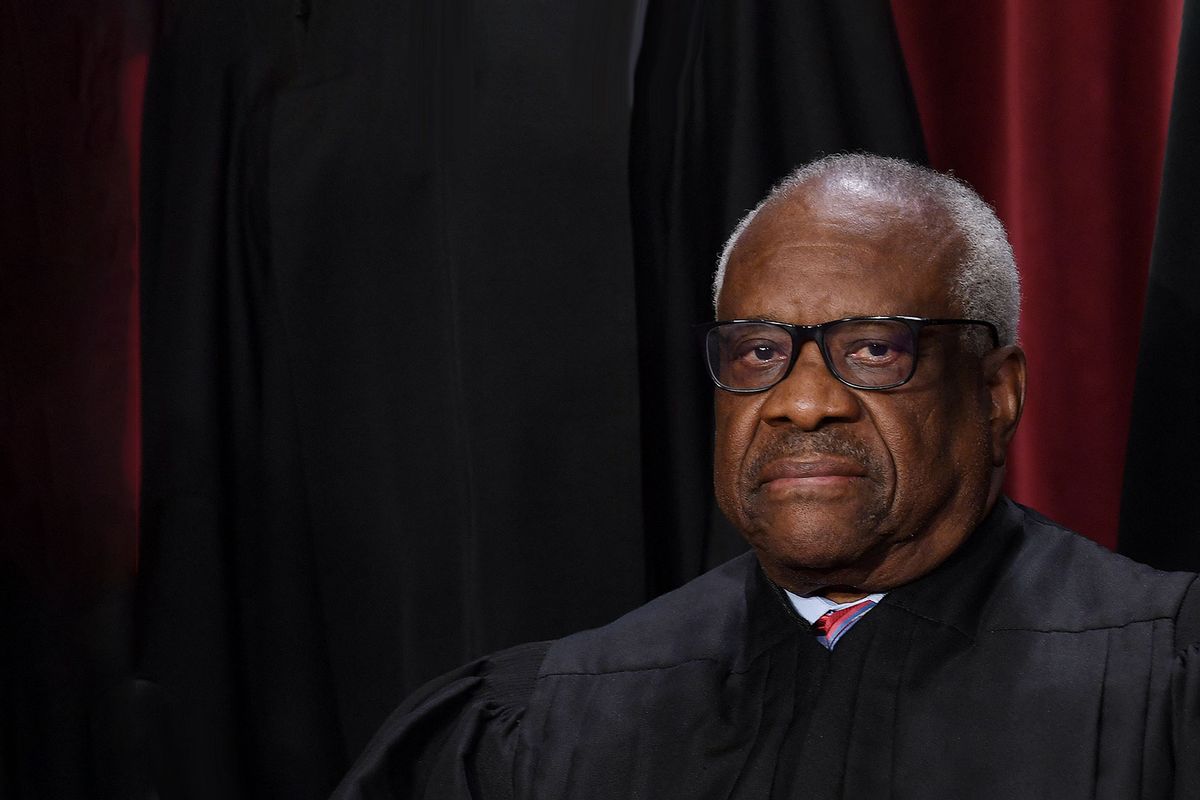Several lawyers who have handled cases before the Supreme Court, including one who successfully argued for the elimination of race-based affirmative action at colleges, sent money to a top aide of Justice Clarence Thomas, according to the aide's now-private Venmo transaction history.
The lawyers sent what appeared to be payments for Thomas' 2019 Christmas party to Rajan Vasisht, an aide in Thomas' chamber from July 2019 to July 2021. The transactions "seem to underscore the close ties between Thomas, who is embroiled in ethics scandals following a series of revelations about his relationship with a wealthy billionaire donor, and certain senior Washington lawyers who argue cases and have other business in front of the justice," according to The Guardian,
Vasisht's Venmo account shows that he received seven payments from November to December 2019 from lawyers who had previously served as Thomas' legal clerks: Patrick Strawbridge, a partner at Consovoy McCarthy who recently argued that race-conscious university admissions violated the Constitution; Kate Todd, who served as Donald Trump's White House deputy counsel at the time of the transaction; Elbert Lin, the former West Virginia solicitor general who participated in a Supreme Court case that curbed the Environmental Protection Agency's ability to regulate greenhouse gas; and Brian Schmalzbach, a McGuire Woods partner who has argued cases before the court multiple times.
Manuel Valle, a University of Chicago law school graduate who clerked for Thomas last year and is currently working as a managing associate for Sidley; Liam Hardy, an appeals court judge for the armed forces who was working at the Justice Department's office of legal counsel at the time of payment; and the late Will Consovoy, who clerked for Thomas during the 2008-09 term and was considered a rising star of conservative legal circles, also made payments.
Though the value of the payments was not visible, the purpose of each transaction was listed as either "Christmas party," "Thomas Christmas Party, "CT Christmas Party" or "CT Xmas party," apparently referencing Thomas' initials. It remains unclear, however, exactly what the funds were for.
None of the lawyers who made transactions responded to the Guardian's emailed questions. Vasisht did not respond to an emailed list of questions from the outlet either. When reached via WhatsApp and asked if he would make a statement, Vasisht responded, "No thank you, I do not want to be contacted."
According to his resume, Vasisht's duties while working for Thomas included assisting the justice with the administrative work of his chambers such as personal correspondence and his personal and office schedule.
Legal experts told the Guardian that the transactions raised ethical concerns. Richard Painter, who served as George W. Bush's chief White House ethics lawyer, said it was "not appropriate" for Thomas' former clerks who were now established private lawyers to effectively send money to the Supreme Court.
"There is no excuse for it. Thomas could invite them to his Christmas party and he could attend Christmas parties, as long as they are not discussing any cases. His Christmas party should not be paid for by lawyers," said Painter, who has also been a longtime critic of dark money in politics. "A federal government employee collecting money from lawyers for any reason … I don't see how that works."
Want a daily wrap-up of all the news and commentary Salon has to offer? Subscribe to our morning newsletter, Crash Course.
Painter added that he may make an exception for a recent law clerk who was paying their own way for a party, but a majority of the lawyers who sent the money are senior litigators at big firms.
Kendric Payne, the general counsel and senior director of ethics at the Campaign Legal Center, told the outlet that, based on the information available, it was possible the former clerks were paying their own expenses, which he believed was different from them paying admission to an event to potentially influence the justice.
"But the point remains that the public is owed an explanation so they don't have to speculate," he added.
Thomas has been at the center of several Supreme Court ethics controversies this year following shocking exposés from ProPublica, which revealed that the conservative billionaire and megadonor Harlan Crow funded extravagant vacations for Thomas, purchased Thomas' mother's home, footed the bill for the Thomas' grand-nephew's tuition in the 2000s. In response, Democrats have since called for the passage and imposition of new ethics rules on the justices.
The conservative justice has also built a reputation around having close relationships with his former clerks. A 2019 article in The Atlantic noted the justice has a "vast network" of mentees and former aides who now serve as federal judges and or assumed senior roles in the Trump administration. His clerks' widespread presence, the Atlantic added, meant the "notoriously silent justice may end up with an outsize voice in the legal system for years to come."
Read more
about the Supreme Court



Shares